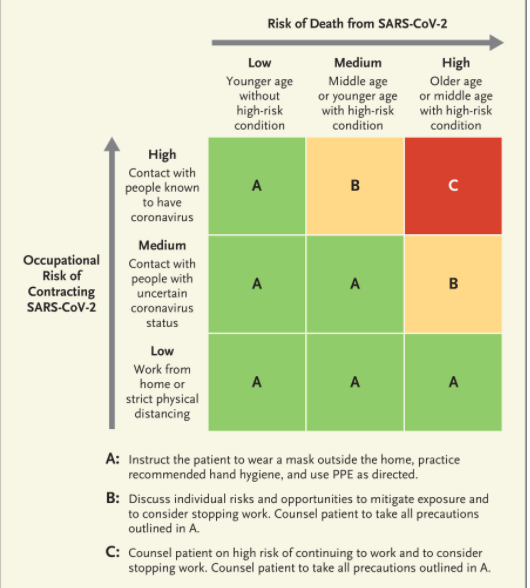THREAD: I wrote recently about risk perception and its impact on behavior. I’ll elaborate as we “re-open”, with reference to covid19 “alarms” & alarm fatigue many are experiencing. 1/
For >3mo, we’ve been inundated w/ alarms related to acceptable behavior. “don’t leave our houses”, “don’t visit with friends”. All for good reason. However we must consider the impact these broader reaching statements have on our ability to comply for a sustained period.
2/
2/
We are re-opening, yet we’re supposed to remain viligant. This is inherently problematic. Asking people to “be careful” is about as effective as shifting deck chairs on the titanic. People will be careful…until they aren’t.
3/
3/
We’d do well to borrow from systems engineering as we manage #covid19 “alarm” fatigue. It’s a reality that most (if not all) of us are struggling with. While we may hit snooze on our alarm clock, it doesn’t mean we don’t have to get up.
4/
4/
Similarly, just because we’ve become increasingly desensitized to the #covid19 alarm, doesn’t mean the risk is gone. How can we manage this? One approach includes a pragmatic assessment of risk, tailored to the individual.
5/
5/
Also, authorities, governments, public health officials & industry can look to “preferred failure”. A term used by my colleague @HumanFact0rz, that acknowledges at some point we won’t comply or we'll “fail” in our efforts… so we can fail towards the least risky alternative.
6/
6/
Let’s create systems and spaces that make it easy to fail in the least risky way. For example, the evidence suggests that if people gather, it's far better to do so outside than inside… our policies should reflect that.
7/
7/
Authorities continue to sound alarm about #COVID19 but we need clarity why the alarm? We all know what a fire alarm indicates. People need guidance by government, informed by PH & ID experts, what we’re worried about. Is it the 2nd wave? Exposure to vulnerable populations?
8/
8/
Clarity is key, coupled with honesty about inevitable knowledge gaps. Yet our current policies in place create confusion…kids can’t play in a playground but we can all go inside into stores? Daycares opening? This doesn’t follow the evidence.
9/
9/
We can borrow from alarm management, a multi-faceted approach to dealing with alarm fatigue.
https://psychology.wikia.org/wiki/Alarm_management
These include
- Simplify the alarm…complexity is difficulty. E.g. Stay 6 feet away from people and wear a mask while indoors. Straightforward.
10/
https://psychology.wikia.org/wiki/Alarm_management
These include
- Simplify the alarm…complexity is difficulty. E.g. Stay 6 feet away from people and wear a mask while indoors. Straightforward.
10/
- Customize alarms for different populations. I'm happy to see a regionalized approach to re-opening
- Eliminate alarms (messages) that provide little return on investment
- Routinely evaluate the effectiveness of each alarm or message
11/
- Eliminate alarms (messages) that provide little return on investment
- Routinely evaluate the effectiveness of each alarm or message
11/
- Communicate alarm-related incidents to the public (e.g. we’ve relaxed restrictions in this domain BECAUSE (must say why)) or we've failed with this restriction...
- Target highest risk behaviors based on the evidence (prioritization)
12/
- Target highest risk behaviors based on the evidence (prioritization)
12/
The media should be held accountable for use of the term “safe”. This term is of little value in describing most our daily activities and #covid19 is no exception. Is it safe to drive on a highway? Well, it depends...
13/
13/
Rather, a better question... how can we design our lives, our systems, our environment to reduce risk to a level for which we’re comfortable. Our risk is reduced if we drive on the highway when we’re wearing our seatbelts, and the car has airbags.
https://blogs.bmj.com/bmj/2020/06/02/sebastian-walsh-we-are-asking-the-wrong-questions-about-easing-lockdown/
14/
https://blogs.bmj.com/bmj/2020/06/02/sebastian-walsh-we-are-asking-the-wrong-questions-about-easing-lockdown/
14/
In summary, a systems approach can help us deal with alarm fatigue. Acknowledge how difficult the past few months have been. Give us a “why” for actions & simplify the message. And promote a "preferred failure" directive. It's all possible. We've seen an amazing effort already.

 Read on Twitter
Read on Twitter



